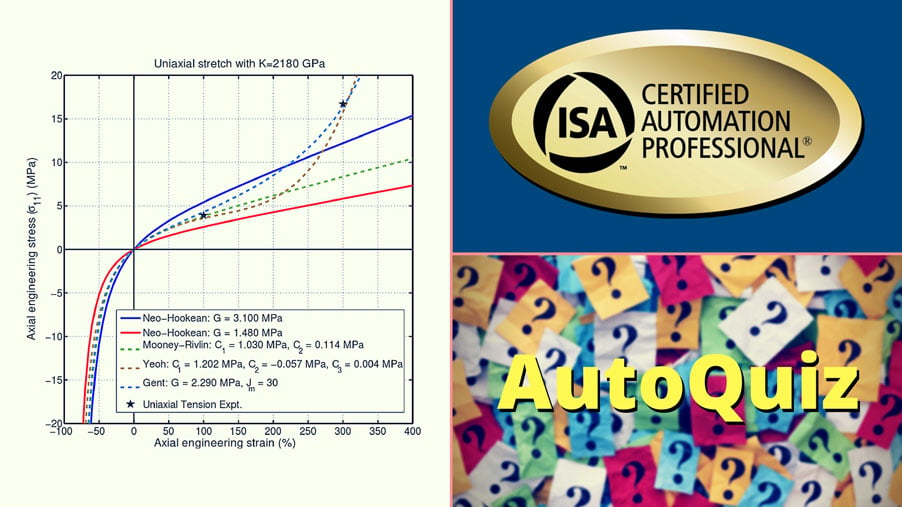AutoQuiz is edited by Joel Don, ISA's social media community manager.
Today's automation industry quiz question comes from the ISA Certified Automation Professional certification program. ISA CAP certification provides a non-biased, third-party, objective assessment and confirmation of an automation professional's skills. The CAP exam is focused on direction, definition, design, development/application, deployment, documentation, and support of systems, software, and equipment used in control systems, manufacturing information systems, systems integration, and operational consulting. Click this link for information about the CAP program. The following question comes from the CAP study guide, Performance Domain II, Definition: Identify customer requirements and complete high-level analysis of the best way to meet those requirements.

What is the MOST appropriate technique for modeling linear relationships for a large number of correlated inputs where the equations are unknown?
a) artificial neural networks
b) multivariable statistical process controls
c) step response models
d) first principle models
e) none of the above
Artificial neural networks (ANN) excel at modeling nonlinear relationships for a relatively large unknown number of inputs. However, the inputs cannot be correlated and the training data must cover the whole region. An ANN cannot extrapolate values outside the test region and does not handle large lags well.
The multivariate statistical-process control excels at modeling unknown linear relationships for a large number of inputs that could be correlated.
Step response models excel at linear relationships for a small to moderate number of uncorrelated inputs where dynamics are important. Step response models are used for linear dynamic on-line property estimates.
First principle models require known equations and parameters that use process principles and material and energy balances.
The correct answer is B, multivariable statistical process controls.




